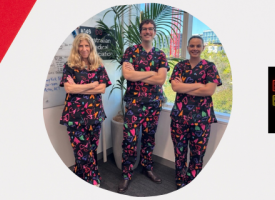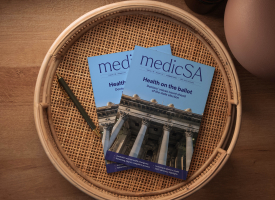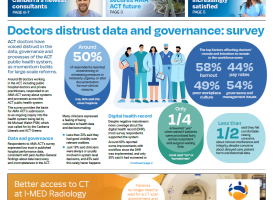Minimise financial barriers for workers in insecure jobs during Covid-19 pandemic
The AMA has said the COVID-19 pandemic has highlighted not only the adverse health impacts for people in insecure jobs, but wider public health efforts to combat community spread of the disease.

The AMA has called on the Federal Government to recognise job security as an important social determinant of health with significant implications for public health.
Dr Antonio Di Dio, a Canberra GP and a member of the AMA’s Public Health and Mental Health Committees, appeared on behalf of the AMA at a Senate Inquiry hearing into Job Security yesterday.
Australia’s experience with the COVID-19 pandemic had demonstrated that job insecurity had implications for health beyond the individual level and that wider public health must be considered, he said.
From early in the pandemic, health advice to all Australians recommended people stay home if they were unwell, to get a COVID test if they met the testing criteria, and to isolate at home while they waited for the results.
For people working in jobs without leave entitlements, or casual workers these choices were not as simple. For example, people with mild symptoms may have delayed getting tested while continuing to work.
“Insecure work is associated with a range of negative health outcomes, including mental ill-health, chronic disease, and workplace injuries,” Dr Di Dio said.
“But in addition, Australia’s experience with the COVID-19 pandemic has demonstrated that job insecurity has implications for health beyond the individual level, and that wider public health must be considered.
“For many of those working in insecure jobs, no work means no income and governments need to ensure that complying with public health directions is not a choice between breaking the law and putting food on the table.
“The barriers to getting tested, isolating and quarantining, as well as getting vaccinated, should be minimised - especially the financial barriers.”
Because people in insecure work are already more likely than permanently employed Australians to experience disadvantage in other areas, addressing job insecurity had important implications for health equity.
“The principal factor contributing to poor health among insecure workers is prolonged anxiety about losing income and the repercussions that this will have for workers’ standards of living and ability to support their families,” Dr Di Dio said.
“The AMA thinks that is critical for the Federal Government to also ensure all individuals have access to means that support adequate standards of living, regardless of their participation in paid employment.”



